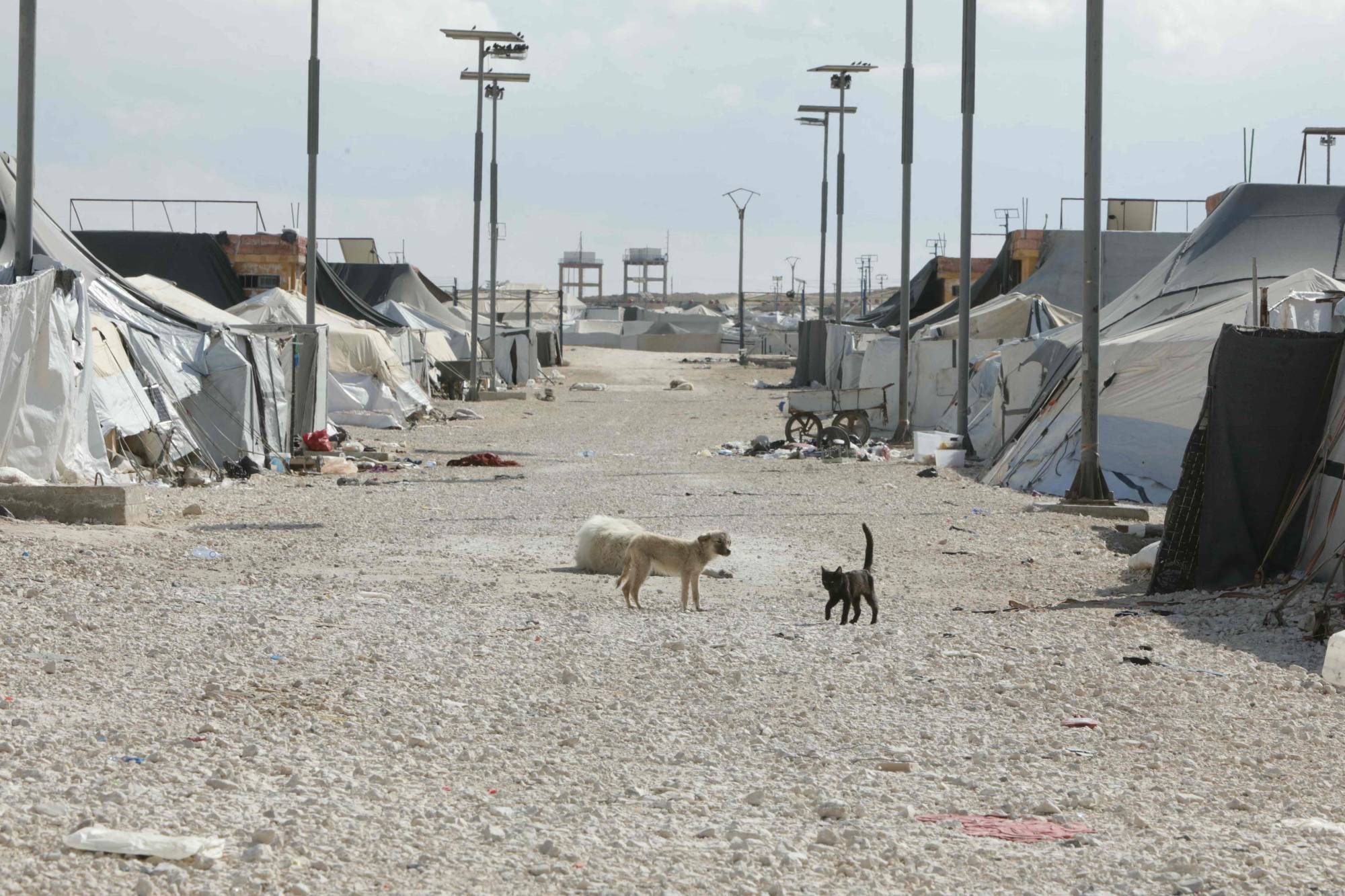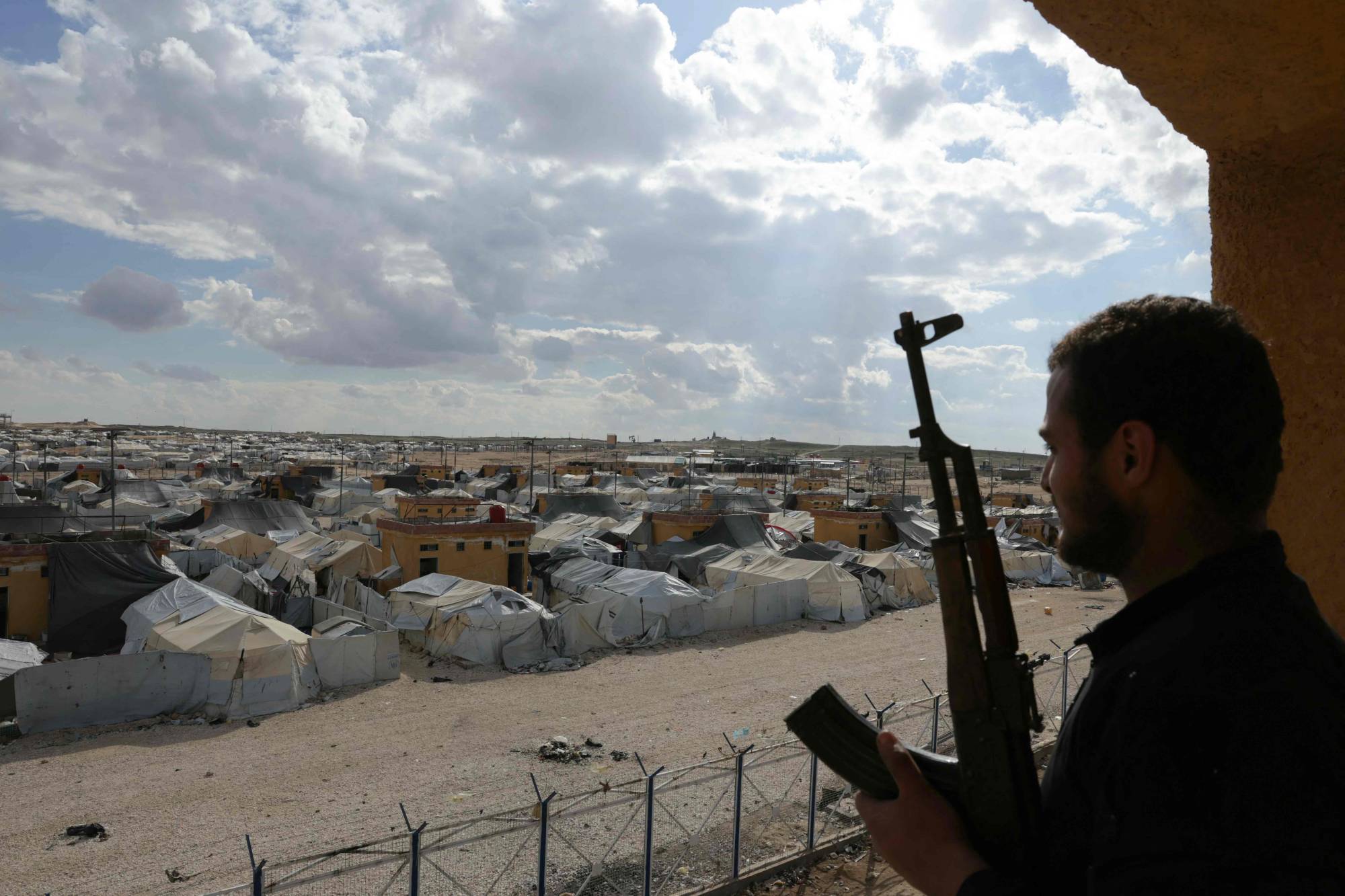Lebanon’s caretaker Interior Minister Bassam Al-Mawlawi said his country “is not for sale,” and that it rejects financial “enticement” to settle displaced Syrians.
In an interview with Asharq Al-Awsat during his visit to Paris, Mawlawi pointed to the “very thorny” issue of the Syrian presence in Lebanon, saying that it was “linked to international politics and Western American and European positions, as well as the (internal) situation in Syria.”
He stressed that an “integrated” remedy to this file “is tied to the solution to the Syrian crisis, whether inside Syria or with regards to its relations with the United States and all Western countries.”
However, the minister underlined that Lebanon “cannot wait until such a solution is reached to begin implementing the procedures that are required by law.”
Lebanon “is not a country for sale, and it cannot be tempted with aid aimed at keeping or settling Syrians” in the country, he remarked.
He added: “We cannot let the Syrian refugee situation harm Lebanon, the Syrians, and the future of Syria. Our goal is not to regulate the Syrian situation in Lebanon. Our goal is a return plan for (the displaced) within a time frame.”
The minister expressed his satisfaction with the results of the security plan that his ministry had put into effect since April 23. In his view, the plan had four goals: preventing violations, prosecuting wanted persons and enforcing the law on Lebanese territory, providing a sense of security for citizens in Beirut and the rest of the country, and raising the morale of the security forces so that they can fully carry out their tasks.
According to Mawlawi, the security plan came in response to citizens’ complaints about the security chaos, the danger facing travelers taking the road leading to Beirut International Airport at night, and various other violations.
Mawlawi stressed that the plan achieved successes two months after its implementation, pointing to a drop in crime.
Asked whether all Lebanese territories were accessible to the security forces, the minister replied: “Yes... The evidence is the arrests that are taking place in all Lebanese areas, even those that are considered as difficult to access for the security forces.”
However, on the other hand, Mawlawi does not deny the “significant” impact of the ongoing financial and economic crises on the capabilities of the military and security forces. But he noted that the 2024 budget “provided the security forces with some of their rights,” which he said are “acceptable today.”
A lot has been said about the consequences of the massive Syrian displacement to Lebanon, with the burden they have had on the economy, infrastructure, schools, hospitals, and security, and most importantly, demographic change in some areas.
According to Mawlawi, over two million displaced Syrians are in Lebanon, 32 percent of prisoners in Lebanon are Syrian and 75,000 Syrians have been arrested for committing crimes.
It is difficult to “deny this fact,” he stated, noting that the “heavy Syrian presence affects security in Lebanon.”
The minister underlined that only 600,000 Syrians are residing in Lebanon legally. He added that “after difficult negotiations”, the UNHCR provided the General Security directorate with incomplete data about 1.486 million people, who have cards from the UNHCR.
Moreover, Mawlawi criticized Western countries for their handling of the Syrian displacement file because they worry that they would leave Lebanon for Europe.
He also pointed to other reasons, including their refusal to return them to Syria because this would mean normalizing relations with the Damascus regime.
The minister also blamed the UNHCR for distributing aid to the Syrians in Lebanon, instead of providing this aid to them in Syria.
“Most Syrians in Lebanon are there for economic reasons... But Lebanon cannot tolerate this heavy Syrian presence. We say that the Lebanese are not racist by nature. What the Lebanese state is doing is not at all out of racism,” he stressed.
The Lebanese people look at this issue as a whole, from the perspective of their country’s higher interests, and for the sake of maintaining its diversity and ensuring the availability of job opportunities for the Lebanese people, he emphasized.
Regarding the international community’s insistence on the voluntary, safe and dignified return of the refugees, Mawlawi said: “I always say that the return to Syria must be safe, in terms of human rights and the treaty and convention against torture that Lebanon is party to.”
“As for voluntary return, that is another matter. What we see is that the voluntary Syrian presence in Lebanon must be in line with the capabilities and policy of the Lebanese government and according to its discretion. We are, of course, in favor of their safe return, but the issue of voluntary return is something I do not approve of and is up to debate,” he remarked.











